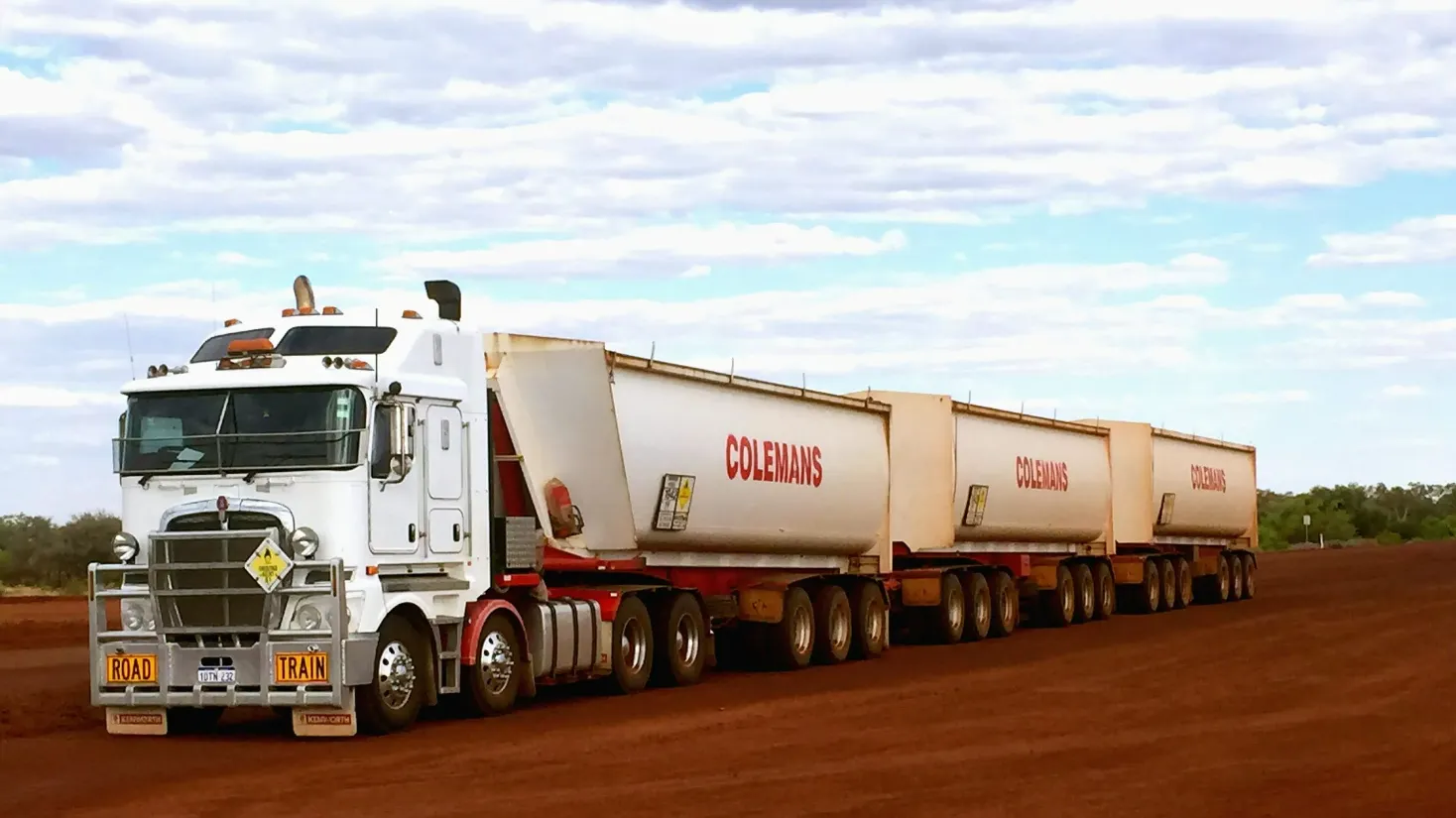
Fuel Price in Australia: Impact on the Transport and Trucking Industry
- David
- October 17, 2024
- 08 Mins read
Fuel Price in Australia: Impact on the Transport and Trucking Industry
Australia’s trucking industry is the backbone of its supply chain, moving goods across vast distances and through remote areas. These trucks, especially long-haul freight trucks, consume significant amounts of fuel—making fuel prices a critical factor in the industry’s operations and profitability. The cost of fuel is a constant concern for truck owners and fleet managers, as it can drastically impact operating expenses. With fuel consumption being one of the highest costs in running a truck fleet, even minor fluctuations in fuel prices can have ripple effects throughout the industry. In this article, I’ll take a deep dive into the current state of fuel prices in Australia, explain how prices fluctuate, discuss the factors influencing those changes, and offer predictions for future trends. We’ll also touch on the importance of fuel management and how technology like Fuellox can help operators minimize costs and prevent fuel theft.
1. Australia’s Trucking Industry and Fuel Consumption
Australia is a massive country with sparsely populated regions, making transport logistics highly dependent on trucks. Trucks, particularly heavy-duty ones, are responsible for transporting goods between states and cities, often covering thousands of kilometers. According to the Australian Bureau of Statistics (ABS), Australia’s trucking sector consumes over 50% of the total diesel fuel used in the country. This makes the trucking industry highly vulnerable to changes in fuel prices, as even a slight rise can significantly increase operating costs. In my experience speaking with fleet operators, fuel expenses typically account for up to 30% of the total operational costs. So when fuel prices spike, trucking companies either absorb the costs or pass them on to consumers in the form of higher freight charges. But what exactly causes these price fluctuations?
2. Average Fuel Price in Australia
As of 2024, the average fuel price in Australia for diesel, which is the primary fuel for trucks, hovers between $1.80 to $2.00 per litre. However, these prices can vary depending on the region, with cities like Sydney and Melbourne often experiencing slightly lower prices than more remote areas like the Northern Territory or Western Australia, where logistics and transportation costs drive prices higher. Monitoring these price fluctuations is essential for fleet operators to optimize fuel costs.
The average fuel price in Australia is heavily influenced by global oil prices, exchange rates, and domestic inflation. Trucking companies and fleet managers must stay informed on these variables to budget for fuel expenses effectively. With fuel prices continuing to fluctuate, effective fuel management practices are more important than ever.
3. How Do Fuel Prices Change in Australia?
Fuel Price Fluctuations
Fuel prices in Australia are known to fluctuate frequently, and it’s not uncommon to see varying prices within a single day. The retail price of fuel can change due to several factors that affect supply and demand, from global oil markets to domestic economic conditions. Many fleet operators I’ve spoken to have become adept at tracking these changes to fuel up during dips in the pricing cycle. However, it’s not always easy to predict when prices will rise or fall, especially given the volatility of global markets. Fuel pricing cycles also vary from city to city, with larger metropolitan areas like Sydney and Melbourne experiencing more frequent and pronounced price swings compared to smaller regional towns.
Fuel theft often leads to unexpected vehicle downtime. When a driver finds their tank empty before a trip, it causes delays in deliveries and service disruptions. This not only affects your operational efficiency but can damage your reputation with clients.

© Image by Colemans - sourced Oct 2024 - no ownership claimed
4. Factors Affecting Fuel Prices in Australia
There are several key factors that influence the cost of fuel in Australia:
Global Crude Oil Prices
The most significant factor affecting fuel prices in Australia is the global price of crude oil. Australia imports the majority of its crude oil, so shifts in global oil prices have a direct impact on fuel costs here. Geopolitical tensions, natural disasters, and changes in oil production levels by major exporters like OPEC can cause dramatic shifts in crude oil prices. For instance, we saw oil prices spike when Russia’s invasion of Ukraine disrupted global oil supply chains. This led to a surge in fuel prices worldwide, including in Australia.
Exchange Rates
Since crude oil is traded globally in U.S. dollars, Australia’s exchange rate with the USD also plays a significant role in determining the final fuel price. When the Australian dollar weakens against the U.S. dollar, the cost of importing oil becomes more expensive, which leads to higher fuel prices at the pump.
Government Taxes and Excises
Another significant factor influencing fuel prices is government-imposed taxes and excises. In Australia, the government charges a fuel excise tax, which is adjusted twice a year. This excise is intended to fund infrastructure projects, including roads, but it also adds to the overall cost of fuel. As of 2024, the excise stands at around 48.8 cents per litre, and it can vary based on inflation and other government policies.
Refining and Distribution Costs
The process of refining crude oil into usable fuel, along with the transportation and distribution of fuel across the country, also adds to the final retail price. Australia’s vast distances make logistics a challenge, especially for trucking companies that operate in remote regions, further adding to fuel costs.
Seasonal Demand and Natural Disasters
Seasonal changes and natural disasters like bushfires or floods can temporarily disrupt supply chains, causing fuel shortages and price increases. In Australia, the northern wet season can also affect transportation routes, leading to higher fuel prices in some regions.
5. Inflation in Australia and Its Impact on Fuel Prices
Inflation in Australia has been on the rise in recent years, and this has added another layer of complexity to fuel pricing. Rising inflation erodes purchasing power, and as the cost of goods and services increases, the trucking industry feels the pinch. With inflation driving up the cost of oil, refining, and transportation, fuel prices are unlikely to stabilize anytime soon. The Reserve Bank of Australia (RBA) has been raising interest rates to combat inflation, but this also has implications for fuel prices. Higher interest rates can strengthen the Australian dollar, which might help reduce the cost of imported oil, but the global factors still make fuel pricing highly unpredictable.
6. Future Predictions for Fuel Prices in Australia
Given the current geopolitical climate, economic conditions, and inflationary pressures, it’s difficult to predict exactly where fuel prices will go in the near future. However, most analysts believe that fuel prices will remain volatile in the short term. Global tensions, such as conflicts in oil-rich regions, and fluctuating demand for oil in recovering economies like China, can further drive up prices. In Australia, we can expect prices to remain high due to continued inflationary pressures and the uncertainty surrounding global oil supplies. Long-term, however, the shift toward renewable energy and electric vehicles may start to stabilize prices as demand for fossil fuels declines. For fleet operators, the best strategy is to adopt fuel-saving measures and plan for fluctuations in fuel costs as part of overall operational budgeting.
7. The Importance of Fuel Management and Preventing Fuel Theft
With fuel prices fluctuating and showing no signs of stabilizing soon, effective fuel management is more important than ever for trucking businesses. Managing fuel costs and preventing fuel theft can make a significant difference to a company’s bottom line. In my conversations with operators, they often cite fuel theft—both internal and external—as a growing concern, especially as prices rise.
Tips for Fuel Management
- Use fuel-efficient routes: Plan the most fuel-efficient routes to reduce consumption.
- Monitor fuel usage: Use telematics or fuel management systems to track how much fuel your fleet is using.
- Regular maintenance: Keep vehicles in top condition to ensure they are running as efficiently as possible.
Preventing Fuel Theft
Fuel theft, whether by external theft at refueling stops or internal pilfering, is a real issue for the trucking industry. Installing fuel monitoring systems and keeping tanks locked can help prevent theft. Fuellox offers anti syphon products & fuel security tools that can minimize the risk of theft. If you’re looking for effective fuel management solutions, Fuellox could be the answer.
Meet Colin from CCA Transport

Are you at risk of Fuel Theft?
Complete our quantitative risk assessment to learn if your business is at risk of Fuel Theft. You will receive a risk rating and a guide of how to minimise risk and commercial loss.
References:
- Road Transport - Energy.gov.au
- Reserve Bank of Australia (RBA) - Inflation in Australia